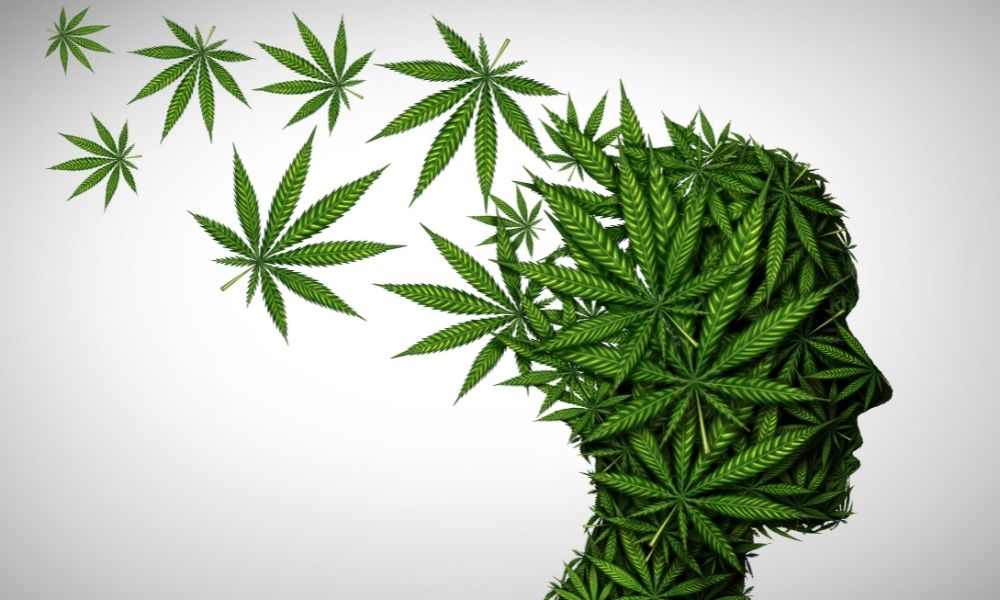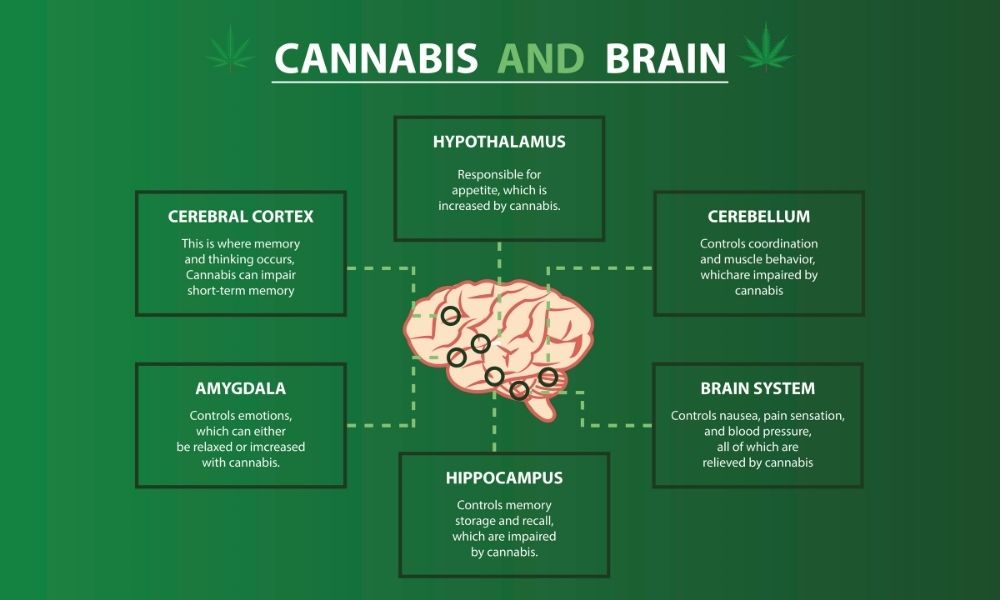Most people have heard of THC, whether they’re a cannabis user or not. While there are more than 120 cannabinoids in the cannabis plant, THC is among the most abundant. It’s also the cannabinoid responsible for the high most people associate with cannabis. But, how does THC affect the brain? Let’s take a look.
How THC Gets You High
So, you know that THC gets you high, but how exactly does it affect your brain? When you smoke, vape, or consume cannabis, the cannabinoid makes its way into your bloodstream. Once there, it travels to your brain, where it comes into contact with your endocannabinoid system (ECS). Your ECS contains two types of receptors, CB1 and CB2. THC has a particular affinity for CB1 receptors.
When THC binds with CB1 receptors, it triggers increased blood flow to the prefrontal cortex, the area of the brain responsible for decision-making, attention, and various executive functions. The amount of THC you take will play a role in how much the cannabinoid affects these functions.
THC also activates the reward pathways in your brain. Binding with the CB1 receptors triggers the euphoria that many users experience when they partake in cannabis.
What Impacts the Effects of THC on Your Brain?
It’s a common misconception that higher amounts of THC in a cannabis product equate to more potent highs. While this may be true sometimes, it’s not always the case. There are a few other factors that can impact the effects of THC on your brain.
The Amount of CBD
Many cannabis products aren’t THC-only. They also contain various other cannabinoids, including CBD. The amount of CBD plays a significant role in the effects of THC. The more CBD a product has, the more mellow the high. The reason for this is that CBD partially blocks some of the CB1 receptors in your brain, keeping THC from binding.
The Terpene Profile
Terpenes are the compounds in cannabis responsible for the scent and flavor of each strain. These compounds can also play a role in the effects you feel when you use a specific product. For instance, some terpenes may help you to feel less anxious by increasing serotonin and dopamine production. These effects may impact the overall effects of THC.
Your Physiology
Your physiology and experience with cannabis can impact the effects of THC on your brain. If you’ve been using cannabis for a long time, you may require higher amounts of THC to achieve the euphoria triggered by the cannabinoid. Your weight, sex, and metabolism may also play a role.
What Happens If You Get Too Much THC?
It is entirely possible to get too much THC in your system. A flood of the cannabinoid can produce a variety of unwanted effects. Instead of a pleasant euphoria, you get extreme paranoia, anxiety, and more. Fortunately, these effects do wear off over time. There are some things that you can do to bring your high down faster.
THC may be the cannabinoid that causes you to get high, but the amount of THC alone is the only thing that impacts its effects on your brain. Understanding the other cannabinoids in a given product, the terpenes, and your own experiences with cannabis can help you to determine what you can expect from any strain or product you purchase.


